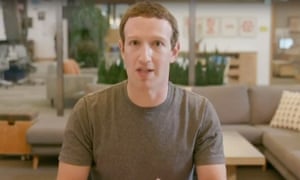The algorithms Facebook and other tech companies use to boost engagement – and increase profits – have led to spectacular failures of sensitivity and worse. How can we fight back?
Recently, Facebook declared another experimental run program in Australia went for ceasing "exact retribution porn" – the non-consensual sharing of bare or generally express photographs – on its stage. Their answer? Simply send Facebook your nudes.
Indeed, the truth is out: in case you're stressed over somebody spreading unequivocal pictures of you on Facebook, you should send those pictures to Facebook yourself.
In the event that this sounds to you like some sort of debilitated joke, you're not the only one. Basically everybody I conversed with about it did a spit-take at the whole commence. However, notwithstanding being strange, it's an ideal case of the way the present tech organizations are stuck between a rock and a hard place, endeavoring to build out of complex social issues – while never addressing whether their exceptionally plans of action have, actually, made those issues.
To perceive what I mean, how about we take a gander at how Facebook's new plan is intended to work: in case you're worried about reprisal porn, you finish an online frame with the Australia eSafety Commissioner's office. That office at that point advises Facebook that you presented a demand. From that point, you send the picture being referred to yourself utilizing Facebook Messenger. A group at Facebook recovers your picture, surveys it, at that point makes a numerical unique mark of it known as a "hash". Facebook at that point stores your photograph's hash, yet not simply the photograph, and advises you to erase your photograph from Messenger. After you've done as such, Facebook says it will likewise erase the photograph from its servers. At that point, at whatever point a client transfers a photograph to the stage, a calculation checks the photograph against the database. On the off chance that the calculation finds that the photograph matches one announced as requital porn, the client won't be permitted to post it.
Simply ponder all the ways this could turn out badly. For one thing, to influence the framework to work by any stretch of the imagination, you should not just have computerized duplicates of the considerable number of pictures that may be spread, yet additionally be alright with a pack of outsiders at Facebook poring over them, and assume that the hashing framework will really get future endeavors to transfer the picture. Also, that is accepting everything fills in as arranged: that you won't botch the transfer procedure and unintentionally send them to another person, that Facebook staff won't abuse your photographs, that your Messenger account won't be hacked, that Facebook will really erase the picture from its servers when it says it will. To put it plainly, you need to assume that Facebook's plan, backend databases and workers are for the most part able to do flawlessly dealing with to a great degree individual data. In the event that any of those things doesn't work very right, the client is in danger of embarrassment – or more terrible.
One man got a video from Facebook set to snazzy music exhibiting his fender bender and consequent outing to healing center
Given Facebook's reputation of managing delicate subjects, that is not a hazard any of us should take. All things considered, this is the organization that let Russian-supported associations purchase promotions planned to undermine vote based system amid the 2016 race (advertisements which, the organization now concedes, a huge number of individuals saw). This is the organization that assembled a promotion focusing on stage that enabled publicists to target individuals utilizing racist group of onlookers classifications, including "Jew haters" and "How to consume Jews". Also, this is an organization that gathered up a screenshot of a realistic assault danger a writer had gotten and posted on her Instagram account, and transformed it into a perky advertisement for Instagram (which it claims) that was then embedded on her companion's Facebook pages.
Also, that is simply from the previous couple of months. Looking further back, we can discover parcels all the more troubling stories – like the time in 2012, when Facebook outed two gay understudies from the University of Texas, Bobbi Duncan and Taylor McCormick. The understudies had utilized Facebook's security settings to cover their introduction from their families, yet Facebook presented a report on their profiles saying they had joined the Queer Chorus.
Since Year In Review, Facebook has amped up this algorithmically-produced sort of celebratory updates. Presently there's On This Day, which, in spite of disclosing to Facebook I would prefer not to see these posts, still flies into my encourage at any rate once per week. There's additionally Friends Day, a phony occasion where Facebook sends algorithmically created photograph montages of clients with their companions – bringing about one man getting a video set to energetic music exhibiting his fender bender and ensuing excursion to the hospital.Or what about the dispatch in 2014 of Facebook's Year In Review include, which gathered your most well known substance from the year and bundled it up for you to remember? My companion Eric Meyer had been maintaining a strategic distance from that element, however Facebook made one for him at any rate, and embedded it into his encourage. On its cover was the substance of his six-year-old girl, Rebecca, flanked by outlines of inflatables, streamers and individuals moving at a gathering. Rebecca had kicked the bucket before that year. In any case, Facebook's calculation didn't know whether that was a decent or terrible picture to surface. It just knew it was prominent.
Be that as it may, Facebook continues embeddings messages and plans into clients' recollections. Simply a week ago, my sister-in-law got a notice shrouded in inflatables and thumbs-up signs revealing to her what number of individuals have loved her posts. The picture they appeared with it? A photo of her softened foot up a cast. I can guarantee you, she didn't fondle especially thumbs about tumbling down a flight of stairs.
What every one of these disappointments have in like manner is that they didn't need to happen. They happen on the grounds that Facebook puts much additional time and vitality in building algorithmically controlled highlights intended to drive client engagement, or give more control to publicists, than it does contemplating the social and social ramifications of making it simple for 2 billion individuals to share content.
You must break a couple of eggs to make an omelet. You need to damage a couple of children to fabricate a $600bn worldwide behemoth
It's not simply Facebook that is swung to calculations to knock up engagement in the course of recent years, obviously – it's a large portion of the tech business, especially the parts dependent on advertisement income. Prior this month, essayist James Bridle distributed an inside and out take a gander at the underbelly of dreadful, brutal substance focused at kids on YouTube – from knock-off Peppa Pig kid's shows, for example, one where a trek to the dental practitioner transforms into a realistic torment scene, to live-activity "net out" recordings, which demonstrate genuine children heaving and in torment.
These recordings are being created and added to YouTube by the thousand, at that point labeled with what Bridle calls "watchword plate of mixed greens" – considerable arrangements of famous inquiry terms stuffed into their titles. These watchwords are intended to diversion or control the calculation that sorts, positions and chooses content for clients to see. What's more, because of a plan of action went for boosting sees (and in this way advertisement income), these recordings are being auto-played and elevated to kids in light of their "similitude" – at any rate regarding catchphrases utilized – to content that the children have just observed. That implies a tyke may begin viewing a typical Peppa Pig scene on the official channel, complete it, at that point be naturally submerged in a dull, rough and unapproved scene – without their parent acknowledging it.
YouTube's reaction to the issue has been to hand duty to its clients, requesting that they hail recordings as unseemly. From that point, the recordings go to an audit group that YouTube says contains a huge number of individuals working 24 hours daily to survey content. On the off chance that the substance is observed to be wrong for kids, it will be age-limited and not show up in the YouTube Kids application. It will even now show up on YouTube legitimate, nonetheless, where, authoritatively, clients must be no less than 13 years of age, yet as a general rule, is as yet a framework which innumerable children utilize (simply consider how frequently restless children are given a telephone or tablet to keep them possessed in an open space).
Like Facebook's plan, this approach has a few imperfections: since it's endeavoring to uncover improper recordings from children's substance, it's presumable that the greater part of the general population who will experience these recordings are kids themselves. I don't expect a considerable measure of six-year-olds to end up plainly forceful substance arbitrators at any point in the near future. Also, if the substance is hailed, despite everything it should be surveyed by people, which, as YouTube has officially recognized, takes "round the clock" checking.
When we discuss this sort of test, the tech organizations' reaction is frequently that it's just the certainty of scale – there's no real way to serve billions of clients unlimited floods of drawing in content without missing the point or enabling misuse to sneak past as a less than dependable rule. Obviously, these organizations don't need to do any of this. Auto-playing an interminable stream of algorithmically chose recordings to kids isn't a type of command. The web didn't need to end up noticeably a buffet of "proposed content". It's a decision that YouTube made, in light of the fact that advertisement sees are promotion sees. You must break a couple of eggs to make an omelet, and you must damage a couple of children to construct a worldwide behemoth worth $600bn.
What's more, that is the issue: in their unblinking quest for development over the previous decade, these organizations have manufactured their stages around highlights that aren't recently defenseless against mishandle, however truly upgraded for it. Take a framework that is anything but difficult to amusement, beneficial to abuse, entwined with our helpless individuals and our most personal minutes, and working at a scale that is difficult to control or even screen, and this is the thing that you get.
The inquiry now is, when will we compel tech organizations to figure with what they've created? We've since quite a while ago concluded that we won't let organizations pitch cigarettes to youngsters or place asbestos into their building materials. On the off chance that we need, we can choose that there are cutoff points to what tech can do to "connect with" us, as well, as opposed to viewing these stages turn further and facilitate far from the idealistic dreams they were sold to us on.



No comments:
Post a Comment